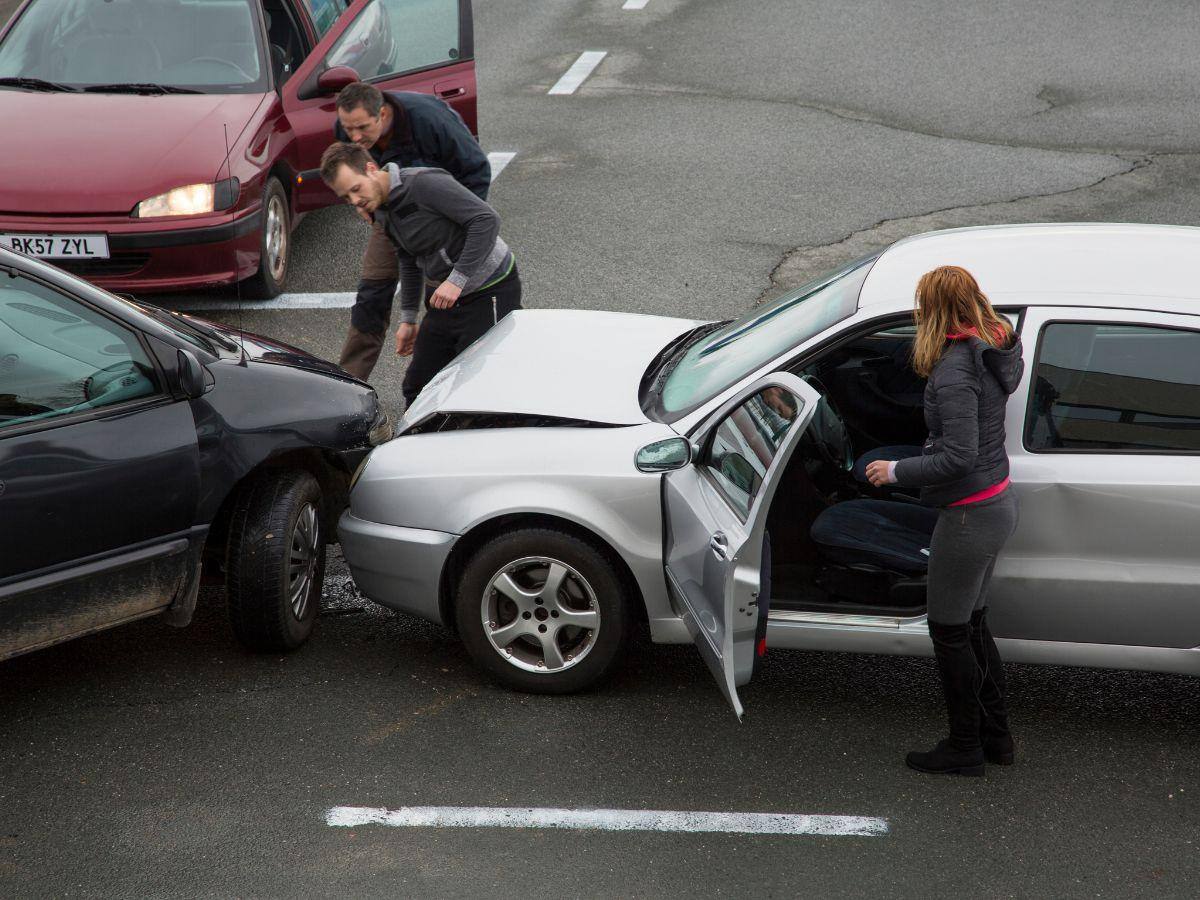Understanding Lawsuits vs. Insurance Claims After a Car Accident
Key Takeaways: Claim vs. Lawsuit: Insurance claims are generally quicker and cover immediate damages through your provider, while lawsuits can...
4 min read
Juan Carlos : 6/24/24 3:04 PM
To secure maximum compensation in court for car accident victims, it is essential to identify a clear determining factor that establishes who exactly is at fault.
However, the process of determining liability and the compensation owed to the affected party involves navigating complex challenges - challenges that an experienced attorney can help guide you through.
One critical aspect of this process is the evidence collected by the victim(s) from witnesses and others present at the scene.
In this article, we'll explore how Georgia courts, juries, and lawyers resolve car accident cases by determining the percentages of fault attributed to the plaintiff and defendant.
We'll also examine how fair compensation is awarded in court based on these fault percentages.
It's important to note that legal and insurance procedures may differ if you crash occurs away from your home state. Click to learn more about how to handle a car accident in a different state.
Table of Contents:
3. Credible Evidence for Your Claim
4. Contact an Experienced Car Accident Lawyer Today!
Negligence, by legal definition, is the failure to uphold a reasonable standard of care to prevent harm or injury to others on the road.
A person exercising average caution and consideration would not engage in behaviors that endanger others.
Georgia courts take this measure very seriously, as it is a crucial factor in determining the at-fault driver in an accident.
Here are some behaviors that are considered "negligent" in court:
This style of driving is a recipe for disaster, endangering the reckless driver and causing harm to other motorists.
Elements of this behavior include speeding, cutting off other drivers when switching lanes, swerving in and out of traffic, and tailgating, which often leads to rear-end collisions.
Aggressive driving increases the risk of losing control of the vehicle and causing serious accidents.
Disregarding laws designed for safe driving breaches one's duty of care to other drivers.
Violations include running stop signs, making illegal turns, ignoring traffic signals, and exceeding the speed limit.
Such actions can lead to serious consequences beyond civil cases, significantly impacting one's driving record for the long term.
Fatigued driving, or driving while drowsy, is a major cause of nighttime car accidents.
A person being sleepy or unable to keep their eyes on the road slows reaction times and reduces alertness.
Fatigued driving shares similar dangers with driving under the influence of alcohol or drugs.
Acting as the leading cause of car accidents, distracted driving occurs when one's focus shifts away from the road. Distractions include texting, eating, looking away from the road, and even changing the radio station while driving.
This is the most common cause of car accidents and other negligent behaviors leading to accidents, especially among younger drivers.
According to a study on ScienceDirect.com, approximately 28 people are fatally injured in car accidents each day due to drivers being under the influence of drugs or alcohol.
Severe car accidents are highly likely with drunk drivers because their reaction times are slower and their judgment is impaired by intoxication.

Comparative fault is crucial in determining the percentage of responsibility assigned to both the victim and the party at fault in a motor vehicle accident. Understanding this distinction is essential for estimating potential compensation when filing a claim as an accident victim.
In civil cases utilizing comparative fault laws, both parties are assigned a degree of fault for the accident, and their respective levels of responsibility are compared. Depending on the actions taken, a certain degree of fault may be attributed to the victim, influencing the compensation they receive due to the negligence of the responsible party.
Georgia adheres to the 50 percent rule, which stipulates that neither party can claim damages if their fault exceeds 50 percent.
Previously, Georgia employed contributory negligence to allow the at-fault party a defense against assuming a larger share of blame. This defense asserted that the victim's negligence contributed significantly to the accident.
However, recognizing the limitations of contributory negligence, Georgia has since adopted comparative negligence. This rule allows for a comparison of the negligent behaviors of both parties involved in an accident, aiming for a fairer distribution of responsibility and compensation.
To substantiate claims in civil court effectively, one needs compelling physical evidence that supports the case and ensures fair compensation for damages. Without such evidence of what constitutes pain and suffering in a car accident case, one's claim risks being dismissed, potentially allowing the responsible party to avoid compensating him/her for the pain and suffering they've endured.
Examples of credible evidence include:
While obtaining camera footage from various angles, such as business surveillance or dashcams from uninvolved parties, can be beneficial, it's crucial to also capture your own pictures and videos. These visual records, particularly of property damage at the accident scene, are essential for supporting your claim and assisting those assisting you in assessing the circumstances leading to the incident.
This documentation can play a pivotal role in determining liability and ensuring a successful claim outcome.
After contacting the authorities following the accident, you will likely need to complete a police report at the station with the assistance of a police officer.
This report plays a crucial role, as it may attribute fault based on witness statements and critical details collected. Comprehensive accident reports are essential for presenting a credible case to the jury and dispelling any misinformation that the defendant may attempt to present. They serve as vital documentation to substantiate your claim and ensure that justice is served.
When seeking medical treatment for your injuries, it's crucial to obtain medical documentation confirming your visit and treatment.
These records not only detail the extent and location of your injuries but also outline any recommended treatment plans. Such information from medical paperwork is essential for ensuring proper reimbursement and fair compensation that accurately reflects the scope of your injuries and treatment needs.

Navigating a car accident claim in court demands the expertise of a seasoned car accident lawyer who can outline effective legal strategies and support you through every step of the process.
At Cotto Law Group, our skilled auto accident attorneys specialize in assisting clients with their accident claims, providing clarity on how fault is determined and measured under Georgia law.
Our experienced car accident attorneys offer comprehensive legal support and have a wealth of experience dealing with defendants who employ comparative negligence tactics to avoid compensation.
Contact us today to safeguard your rights and ensure you receive the maximum compensation you deserve!

Key Takeaways: Claim vs. Lawsuit: Insurance claims are generally quicker and cover immediate damages through your provider, while lawsuits can...

Key Takeaways: Why You Should Never Admit Fault After a Car Accident: Admitting fault can negatively impact your insurance claim and legal...

Key Takeaways: Determining fault in a multi-car accident involves assessing each driver's actions and the evidence from the accident scene....